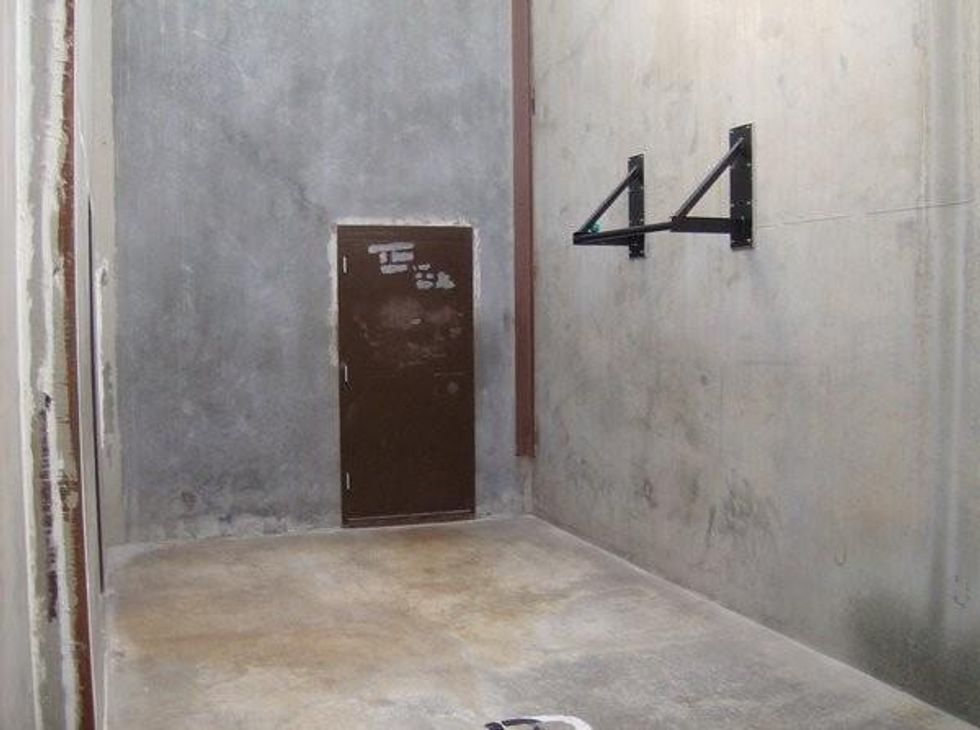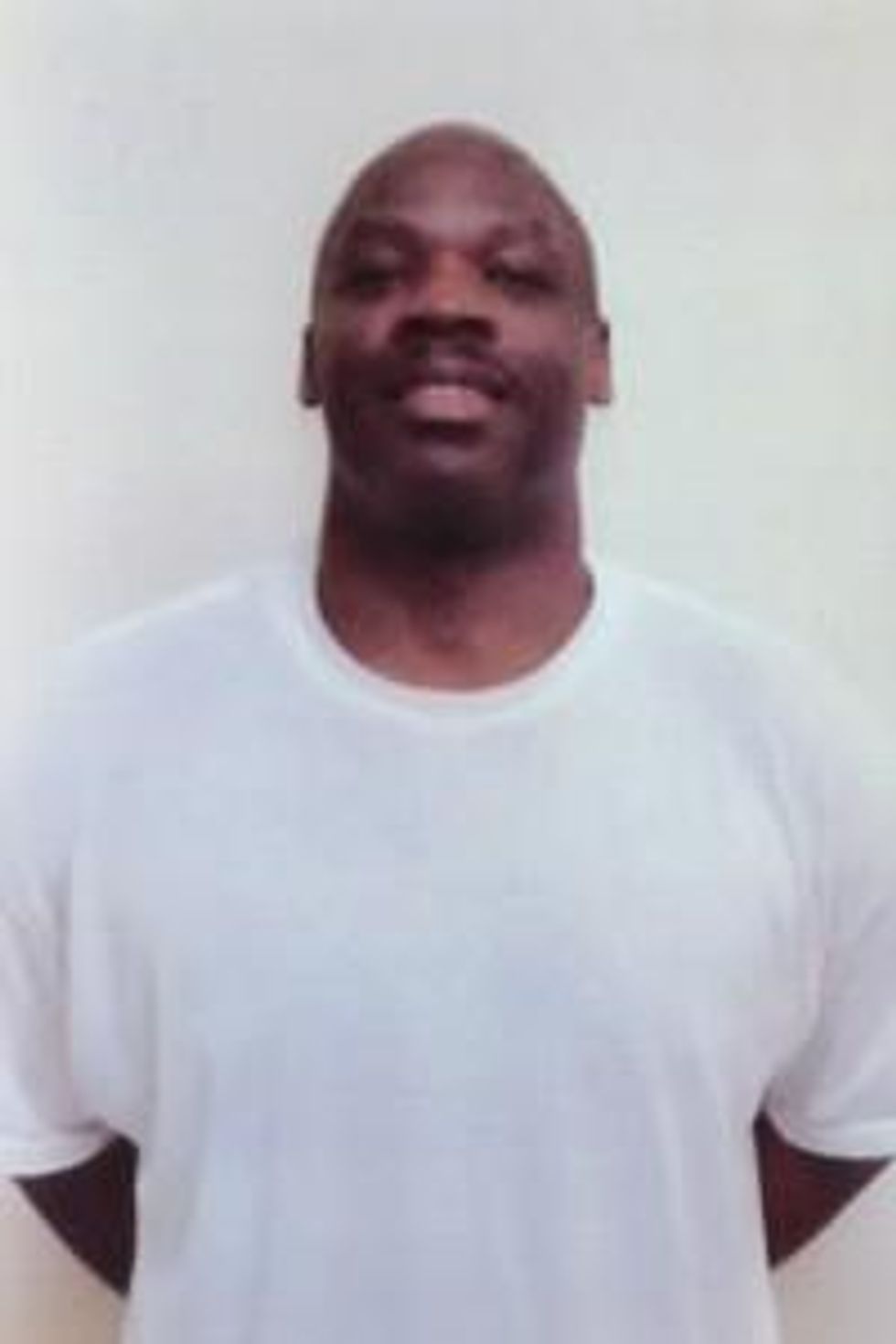Solidarity From the Outside as Calif. Prisoners Face Retaliation On the Inside
Supporters of hunger striking prisoners mobilize for Saturday state-wide California rally; corrections authorities levy threats of cell searches and solitary

Prisoners at two thirds of California's 33 prisons are going without food to demand an end to the 'state-sanctioned torture' that plagues the California prison system, including long-term solitary confinement spanning decades.
"This moment is historic in the ability of comunities inside prison to work with communities outside of prison towards common goals," Isaac Ontiveros of the Prisoner Hunger Strike Solidarity Coalition--which includes scores of prisoner advocacy and prison abolition groups, loved ones, and civil rights lawyers--told Common Dreams.
"[The mobilization] is really profound. It pushes forward the spirit of humanity prisons are meant to crush and opens a wide range of possibilities in which winning the demands of hunger strikers is something we can do together," he adds.

Organizers with the Prisoner Hunger Strike Solidarity Coalition--which formed in collaboration with California state prisoners during the 2011 hunger strikes--expect supporters from across the state to converge at the Saturday solidarity protest that is open to anyone who wishes to show support for the hunger strikers.
This mobilization is part of an outpouring of public support for the over 12,000 prisoners nearing the end of their first week without food, with a thousand also on a prison work and school strike. Supporters have also signed pledges of support, circulated petitions, levied pressure on California governor Jerry Brown and the California Department of Corrections and Rehabilitation, and organized solidarity events across the United States, pressure that organizers say is crucial for victory on the inside.
Yet corrections authorities on the inside are threatening retaliation against the hunger strikers, including destructive cell searches, mental health evaluations, and more harsh solitary confinement measures for those who go without food, the LA Times reports.
The hunger strike, which launched July 8 in Pelican Bay State Prison, is the third major prisoner hunger strike in the state since 2011. In addition to demanding an end to solitary confinement, prisoners are calling for a halt to collective punishments, harsh crackdowns under the auspices of 'stopping gang activies,' and access to education, healthcare, and healthy food.
Over 10,000 California prisoners currently sit in solitary confinement units, and dozens have spent over 20 years of their lives in solitary cells.
In a June 20 statement, Pelican Bay prisoners declared:
We are certain that we will prevail.... the only questions being: How many will die starvation-related deaths before state officials sign the agreement [to our demands]?
The world is watching!
_____________________
An Urgent Message From Our Co-Founder
Dear Common Dreams reader, The U.S. is on a fast track to authoritarianism like nothing I've ever seen. Meanwhile, corporate news outlets are utterly capitulating to Trump, twisting their coverage to avoid drawing his ire while lining up to stuff cash in his pockets. That's why I believe that Common Dreams is doing the best and most consequential reporting that we've ever done. Our small but mighty team is a progressive reporting powerhouse, covering the news every day that the corporate media never will. Our mission has always been simple: To inform. To inspire. And to ignite change for the common good. Now here's the key piece that I want all our readers to understand: None of this would be possible without your financial support. That's not just some fundraising cliche. It's the absolute and literal truth. We don't accept corporate advertising and never will. We don't have a paywall because we don't think people should be blocked from critical news based on their ability to pay. Everything we do is funded by the donations of readers like you. Will you donate now to help power the nonprofit, independent reporting of Common Dreams? Thank you for being a vital member of our community. Together, we can keep independent journalism alive when it’s needed most. - Craig Brown, Co-founder |

Prisoners at two thirds of California's 33 prisons are going without food to demand an end to the 'state-sanctioned torture' that plagues the California prison system, including long-term solitary confinement spanning decades.
"This moment is historic in the ability of comunities inside prison to work with communities outside of prison towards common goals," Isaac Ontiveros of the Prisoner Hunger Strike Solidarity Coalition--which includes scores of prisoner advocacy and prison abolition groups, loved ones, and civil rights lawyers--told Common Dreams.
"[The mobilization] is really profound. It pushes forward the spirit of humanity prisons are meant to crush and opens a wide range of possibilities in which winning the demands of hunger strikers is something we can do together," he adds.

Organizers with the Prisoner Hunger Strike Solidarity Coalition--which formed in collaboration with California state prisoners during the 2011 hunger strikes--expect supporters from across the state to converge at the Saturday solidarity protest that is open to anyone who wishes to show support for the hunger strikers.
This mobilization is part of an outpouring of public support for the over 12,000 prisoners nearing the end of their first week without food, with a thousand also on a prison work and school strike. Supporters have also signed pledges of support, circulated petitions, levied pressure on California governor Jerry Brown and the California Department of Corrections and Rehabilitation, and organized solidarity events across the United States, pressure that organizers say is crucial for victory on the inside.
Yet corrections authorities on the inside are threatening retaliation against the hunger strikers, including destructive cell searches, mental health evaluations, and more harsh solitary confinement measures for those who go without food, the LA Times reports.
The hunger strike, which launched July 8 in Pelican Bay State Prison, is the third major prisoner hunger strike in the state since 2011. In addition to demanding an end to solitary confinement, prisoners are calling for a halt to collective punishments, harsh crackdowns under the auspices of 'stopping gang activies,' and access to education, healthcare, and healthy food.
Over 10,000 California prisoners currently sit in solitary confinement units, and dozens have spent over 20 years of their lives in solitary cells.
In a June 20 statement, Pelican Bay prisoners declared:
We are certain that we will prevail.... the only questions being: How many will die starvation-related deaths before state officials sign the agreement [to our demands]?
The world is watching!
_____________________

Prisoners at two thirds of California's 33 prisons are going without food to demand an end to the 'state-sanctioned torture' that plagues the California prison system, including long-term solitary confinement spanning decades.
"This moment is historic in the ability of comunities inside prison to work with communities outside of prison towards common goals," Isaac Ontiveros of the Prisoner Hunger Strike Solidarity Coalition--which includes scores of prisoner advocacy and prison abolition groups, loved ones, and civil rights lawyers--told Common Dreams.
"[The mobilization] is really profound. It pushes forward the spirit of humanity prisons are meant to crush and opens a wide range of possibilities in which winning the demands of hunger strikers is something we can do together," he adds.

Organizers with the Prisoner Hunger Strike Solidarity Coalition--which formed in collaboration with California state prisoners during the 2011 hunger strikes--expect supporters from across the state to converge at the Saturday solidarity protest that is open to anyone who wishes to show support for the hunger strikers.
This mobilization is part of an outpouring of public support for the over 12,000 prisoners nearing the end of their first week without food, with a thousand also on a prison work and school strike. Supporters have also signed pledges of support, circulated petitions, levied pressure on California governor Jerry Brown and the California Department of Corrections and Rehabilitation, and organized solidarity events across the United States, pressure that organizers say is crucial for victory on the inside.
Yet corrections authorities on the inside are threatening retaliation against the hunger strikers, including destructive cell searches, mental health evaluations, and more harsh solitary confinement measures for those who go without food, the LA Times reports.
The hunger strike, which launched July 8 in Pelican Bay State Prison, is the third major prisoner hunger strike in the state since 2011. In addition to demanding an end to solitary confinement, prisoners are calling for a halt to collective punishments, harsh crackdowns under the auspices of 'stopping gang activies,' and access to education, healthcare, and healthy food.
Over 10,000 California prisoners currently sit in solitary confinement units, and dozens have spent over 20 years of their lives in solitary cells.
In a June 20 statement, Pelican Bay prisoners declared:
We are certain that we will prevail.... the only questions being: How many will die starvation-related deaths before state officials sign the agreement [to our demands]?
The world is watching!
_____________________

